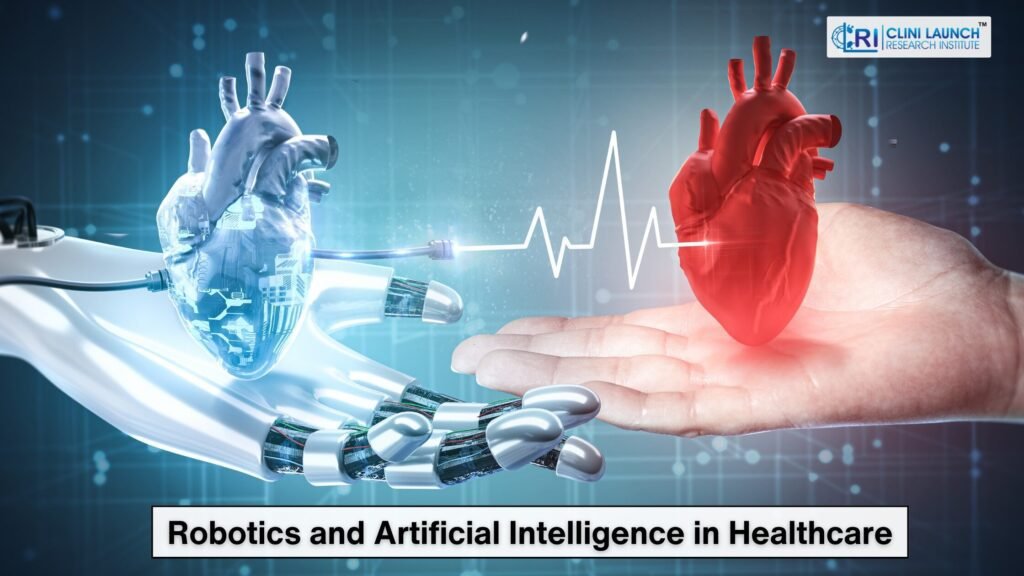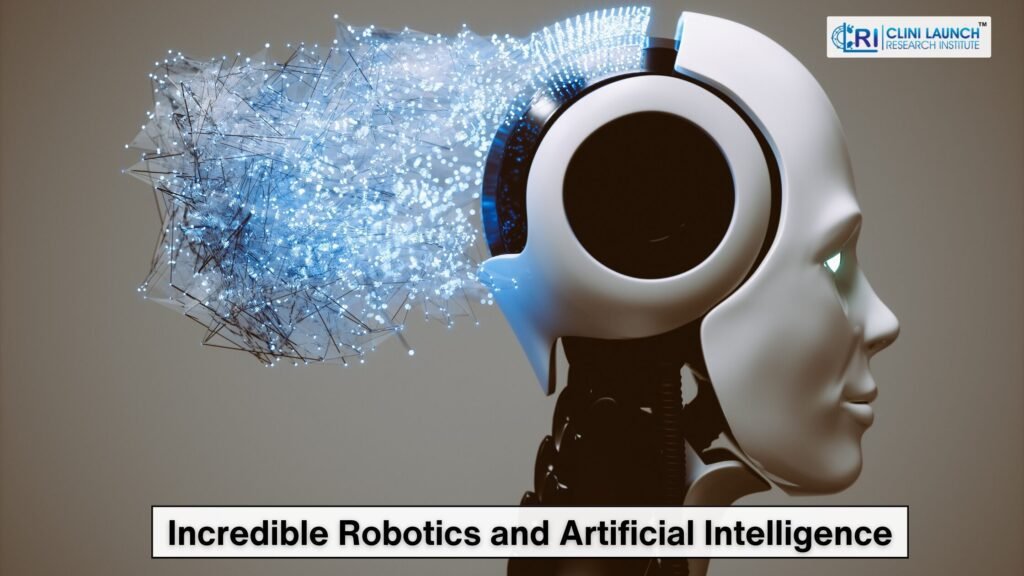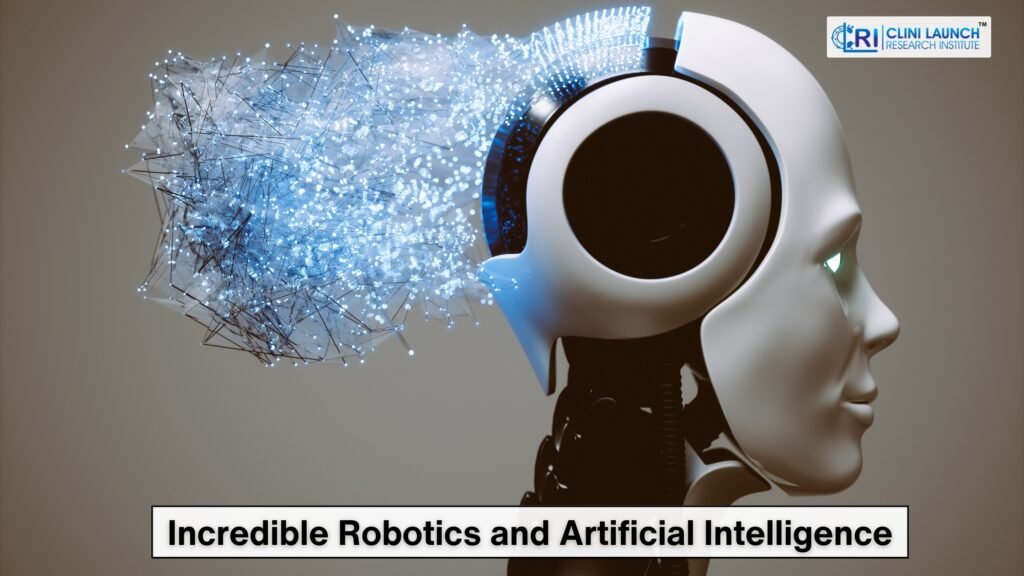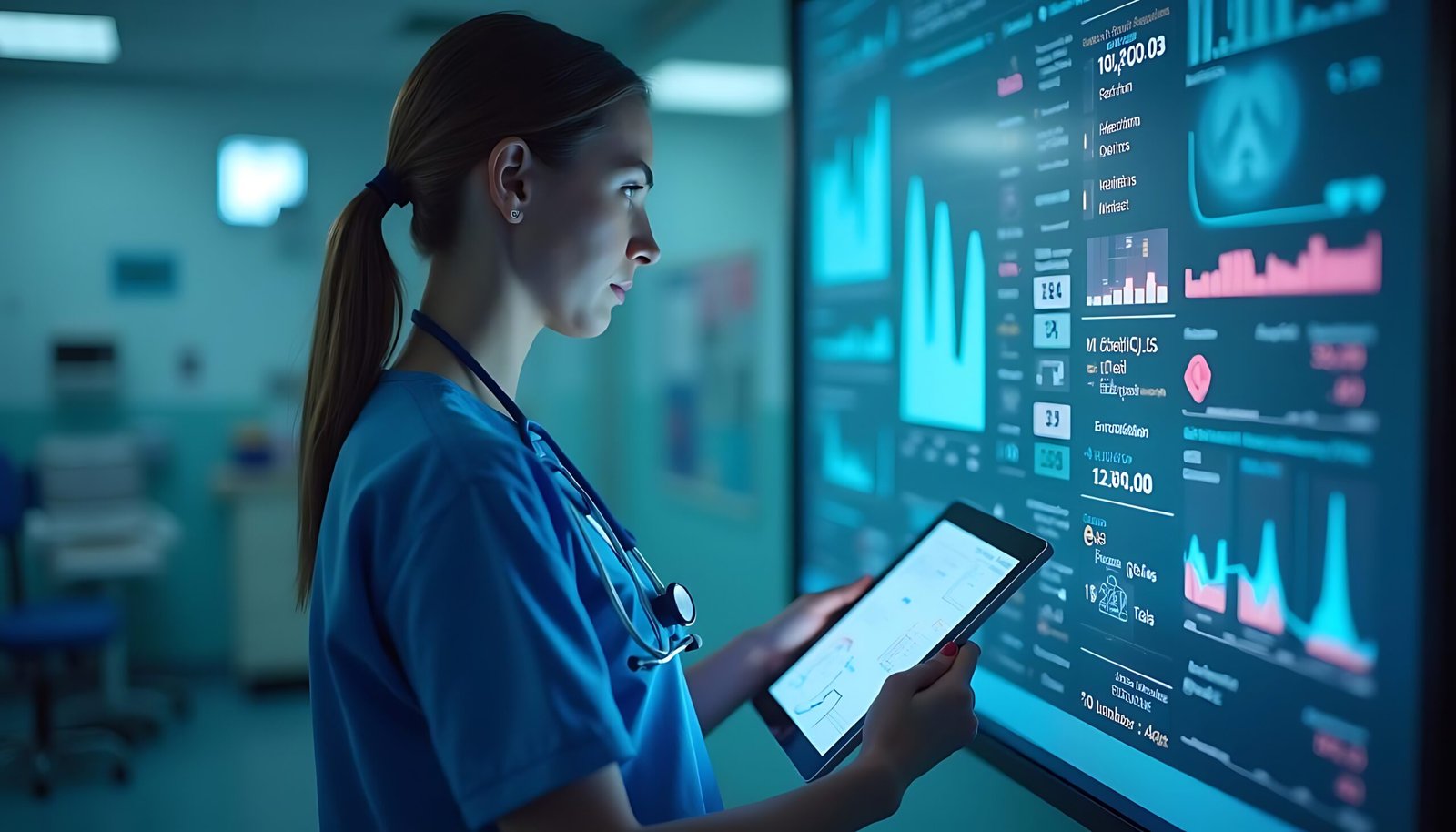Robotics and Artificial Intelligence is revolutionising healthcare by enabling robots to perform tasks with exceptional precision and efficiency. Robotic systems, powered by AI in healthcare, are increasingly used in surgery, diagnostics, rehabilitation, and patient care. These AI powered robots can analyse vast amounts of data, assist in complex procedures, and adapt to individual patient needs. By reducing human error and improving accuracy, AI-driven robotics enhances treatment outcomes, streamlines healthcare operations, and paves the way for more personalised, accessible medical solutions. Robotics and AI have greatly improved areas like diagnosis, risk assessment, telehealth, supply chains, automation, disinfection, and drug research.
In this post, we explore how AI and robotics technologies are shaping the future of healthcare. To learn more about it, scroll down.
To learn more, enrol for “AI and ML in Healthcare Classes”.
Robotics and Artificial Intelligence in Healthcare

The Potential of Artificial Intelligence
A research paper reported in the research paper under robotics and artificial intelligence offered innovative solutions. Healthcare technologies are enhancing patient care, improving diagnostic accuracy, and increasing the efficiency of medical procedures. From robotic-assisted surgeries to AI-powered diagnostic tools, the potential of these advancements is greatly reported by a systematic review. As AI and robotics in healthcare evolve, they are not only complementing the expertise of healthcare professionals but also opening new possibilities for personalised treatments and better patient care.
How Robotics and AI are Shaping the Operating Room
Robotics and Artificial Intelligence are revolutionising surgery by enabling greater precision, control, and minimal invasive procedures. Artificial Intelligence Robots and assisted surgeons can perform complex tasks with enhancing accuracy, reducing human error and turnaround time. As technology advances, AI in medicine and healthcare are poised to redefine surgical practices and enhance overall patient care.
The role of AI in Precision
Personalised healthcare, driven by robotics and artificial intelligence, leverages advanced algorithms to tailor medical treatments and diagnoses to individual patient profiles. AI in medical and healthcare analyses vast datasets, including genomic, clinical, and lifestyle information, to identify patterns and predict disease risk, enabling clinicians to create more precise treatment plans. By integrating AI healthcare and robotics in patient data, it facilitates early diagnosis, improving therapeutic efficacy and minimising adverse effects.
Read a blog post on “Advanced Machine Learning in Medical Imaging Classified 2024”.
Enhancing Recovery with Precision and Automation
AI and robotics in healthcare enhances recovery by providing precise, well planned interventions through automation. Robotic with AI algorithms, adapt to a patient’s specific needs, offering personalised physical therapy and tracking progress in real-time. These technologies enable controlled, repetitive movements that improve motor skills and muscle strength, accelerating recovery.

Crédit: S. Sarker, L. Jamal, S.F. Ahmed et al
Early Detection and Disease Management with AI and Robotics in Healthcare
Early detection and preventive measures powered by AI and robotics can mitigate the risk of transmission to a greater extent. AI algorithms process vast amounts of patient information, including medical imaging, genetic data, and clinical records, to identify subtle patterns that may be undetectable by human clinicians. Furthermore, the report says AI and robotics systems continuously learn from new data, refining diagnostic accuracy over time.
How AI and robotics in healthcare improve efficiency and safety?
Artificial intelligence and Robotic Process Automation services offer surgeons exceptional precision during performing complex procedures. These advanced robots enable minimally invasive surgeries, leading to faster recovery times and less disruption to the body. Thus, patients face reduced post-surgical discomfort and lower infection risks. Overall, AI and robotics make healthcare more accurate, efficient, and safe for patients.
Read a blog post on: “Personalized Medicine: A Data Breakthrough”.
Ethical, privacy and trust as a challenge
As AI in healthcare becomes more common, several challenges arise, especially regarding ethics, privacy, and trust. There are few concerns about patient data privacy, as AI systems need access to sensitive health information. Overcoming these challenges will require clear regulations, guidelines to secure data handling, and continuous efforts to build trust in AI and robotics driven healthcare solutions.
The Impact of AI Robotics on Healthcare Costs and Efficiency

The integration of artificial intelligence and robotics in the healthcare industry has paved the way hospitals deliver care. As in recent years Hospitals have been under tremendous pressure to innovate and be different from competitors alongside taking care of sustainability and social responsibility. These AI and robotics technologies have shown high potential in improving operational efficiency, reducing costs, and driving competitive advantage by harnessing the power of AI and robotics in Healthcare.
Read a blog post on: “Artificial Intelligence in Clinical Research Insights 2024”.
What’s next for AI and robotics in healthcare?
AI and robotics hold significant promise in addressing global health challenges by enhancing disease prevention, diagnosis, and treatment. These technologies can rapidly analyse large datasets to identify emerging health threats, track disease outbreaks, rapidly spreading viruses and predict trends. Additionally, AI-driven robotic diagnosis improves early detection of conditions like cancer, infectious diseases and future health threats. Together, AI and robotics offer scalable, efficient solutions to improve healthcare access, equity, and outcomes worldwide for a better future.
Enrol for “AI and ML in Healthcare Classes”.
Conclusion
This blog highlights the transformative potential of AI and robotics in healthcare and medicine for attaining competitive advantage and promoting sustainable development. By leveraging these different technologies, the health sector can improve patient care, enhance operational efficiency, reduce costs, increase turnaround time, predictive analysis and clinical guidance, differentiate themselves from competitors, and contribute to sustainable development goals. Nevertheless, for successful implementation, it is essential to thoroughly address the ethical, social, and operational factors involved. By embracing AI and robotics responsibly, hospitals and healthcare providers can embrace the future of healthcare.
Are you ready to learn about Artificial Intelligence in healthcare? Join us and become a future leader in AI healthcare innovation. Learn more: https://clinilaunchresearch.in/ai-and-ml-in-healthcare-training-institute-in-india/.








This was beautiful Admin. Thank you for your reflections.
Very educational articles or reviews at this time
Thank you so much.